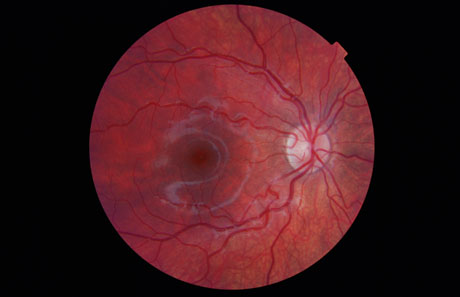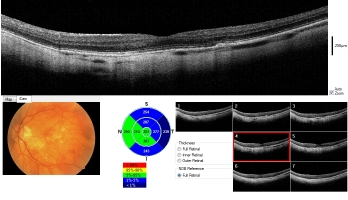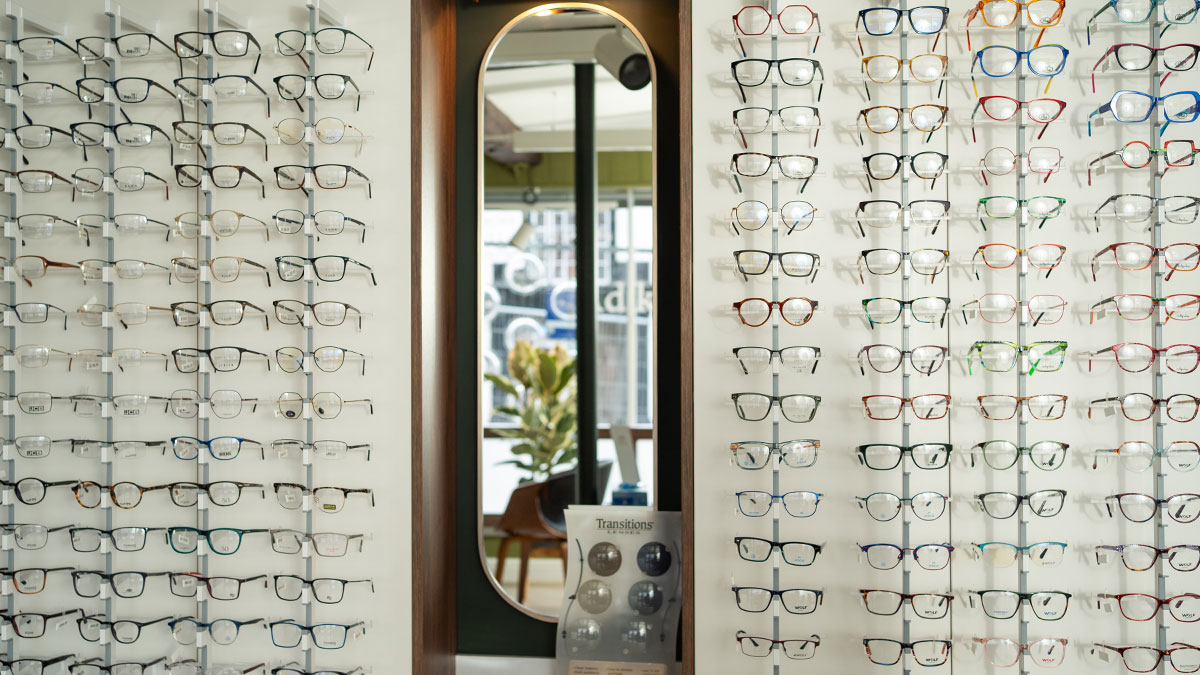Eye examinations are available to both private and NHS patients – to check if you are eligible to NHS eyecare, click HERE. Some NHS patients are also entitled to help towards the cost of glasses and contact lenses. Please ask us if you are unsure.
We believe that having your eyes checked over should be an enjoyable experience. That’s why we offer a relaxed environment and welcome anxious patients.
Broadly speaking, there are 4 components to a full and thorough eye examination. These are:
We begin by asking some questions, in order to build a picture of any particular visual problems and requirements that you may have. We will also enquire about your general health and the ocular history of both you & any relatives. This may sound a little intrusive, but is essential to give us an idea of any risk factors that may affect you.
Feel free to bring anything along which is proving difficult for you to see. From cross-stich patterns to rifle sights and music on stands, we’ve plenty of space to accommodate your props!
This is where we measure your vision and any refractive help that your eyes may need to see in the distance more clearly. Only when this is done, will we turn our attention to focus at other working distances, for example reading and computer work. Along the way, we will check your binocular status to ensure that your vision is both stable and comfortable. We only stop checking testing the sight, once we are satisfied that no further improvement is possible.
We now turn our attention to assessing your ocular health. This can be performed using several different techniques and pieces of equipment. These include an ophthalmoscope and/or a slit lamp microscope which lets us look inside the eye at the cornea, retina, crystalline lens and the vitreous humour, the transparent jelly that fills the eyeball. It can give early information about diabetes, glaucoma, cataract and diseases of the nerves, so the examination is a very useful indication of your general health too.

Where indicated, further tests are performed with an I-care tonometer to measure the intra-ocular pressures and a Zeiss Humphrey Perimeter to measure the visual fields. We may also recommend an advanced examination, which could involve further examinations using our O.C.T. Scanner and Digital Retinal Camera, or other tests, such as Colorimetry or Dry Eye assessments.

Once we have completed all our tests and obtained the results we need, we explain all our findings in relation to any visual symptoms that you may (or may not!) have been experiencing and in a clear, concise manner.
This will include a discussion of your ocular health, demonstrating any findings as appropriate and an explanation of whether further attention is advisable, either by monitoring with more frequent eye examinations or by referral to a GP/Ophthalmologist for medical attention.
We will also make recommendations on any potential improvements to your vision and, explain or demonstrate the best way these may be achieved.
By law, you will always be given a written statement of your prescription and any other relevant information.

or if you have any questions please contact us by filling the from below or give us a call on 01379 650899